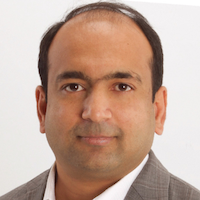Survey Shows Patient Interest in Improved Physician Engagement, Tech Options
Patients want to engage with their physicians in ways that are easy and convenient for them, according to a recent 1000-patient survey.

Puneet Maheshwari, MBA
As technological capabilities continue to align with everyday healthcare, patients want to leverage their devices to communicate with providers, according to the results of a recent online survey.
In today’s world, patients as consumers are used to getting answers quickly and conveniently. Healthcare isn’t usually that way, but patients want it to be. Healthcare engagement group DocASAP surveyed 1000-plus US residents who have visited a doctor in the last 12 months to gauge their preferences in visitation expediency and capability.
Their findings show 4 in 5 patients stated they do not want to wait more than 2 weeks to visit a doctor. In fact, a majority of patients stated they want to see their provider within a week.
Investigators also observed a correlation between increasing patient age and an unwillingness to wait for their next visit. Baby Boomers, defined in the survey as being aged 55 years or older, mostly reported a willingness to wait up to just 3 days for a scheduled physician visit.
Nearly all (90%) surveyed opined they would consider an alternative care option if their provider wasn’t immediately available. Telemedicine measures including phone consultation (50%) and video consultation (45%) were as approximately preferred as visiting another physician (47%), or visiting an urgent care facility (45%) or a walk-in retail clinic (44%).
Scheduling appointments is also viewed as a deterrent or pain point for patients, mostly due to difficulty, long wait times, and office hours. In fact, 54% of surveyed patients delayed seeing their provider because of how difficult it was to schedule an appointment.
The most challenging aspects of scheduling an appointment included waiting a long time to see the doctor after scheduling (49%); only being able to schedule during business hours (43%); the time it takes to schedule an appointment by phone (42%); lack of availability by the physician (41%); and inability to schedule an appointment online (39%).
Nearly 85% of respondents said that scheduling an appointment outside of business hours is “somewhat to very important” to them. Due to these reasons, more than half (53%) of patients said they missed an appointment in the last year.
To better meet the patient where they are and through the medium in which they want to be reached, healthcare practices can change the way they are communicating with their patients, Jim Higgins, chief executive officer and founder of a patient engagement group, Solutionreach, wrote on Inside Digital Health™, a sister publication of MD Magazine®.
Real-time texting is convenient and can influence whether a patient returns to a practice or chooses one who will communicate with them based on their preference, Higgins wrote. Health systems can also implement online scheduling. Making an appointment over phone takes more than 8 minutes, and nearly 80% of patients want to schedule online, which is often an easier and quicker process.
Even if online scheduling is not available, 52% of the DocASAP-surveyed patients stated they would rather receive an email or text message appointment reminder rather than a phone call.
Puneet Maheshwari, MBA, chief executive officer and co-founder of DocASAP, called the results another example of the need to provide “convenient and timely” forms of patient care access and engagement.
He anticipates health systems will continue to invest in access-improving technologies for their patients’ sake.
“Leading organizations will focus on navigating patients to the right provider and care setting at the right time and leveraging digital tools to engage them throughout their entire healthcare journey,” Maheshwari concluded.
The survey, “State of Patient Access and Engagement," was published online by DocASAP.